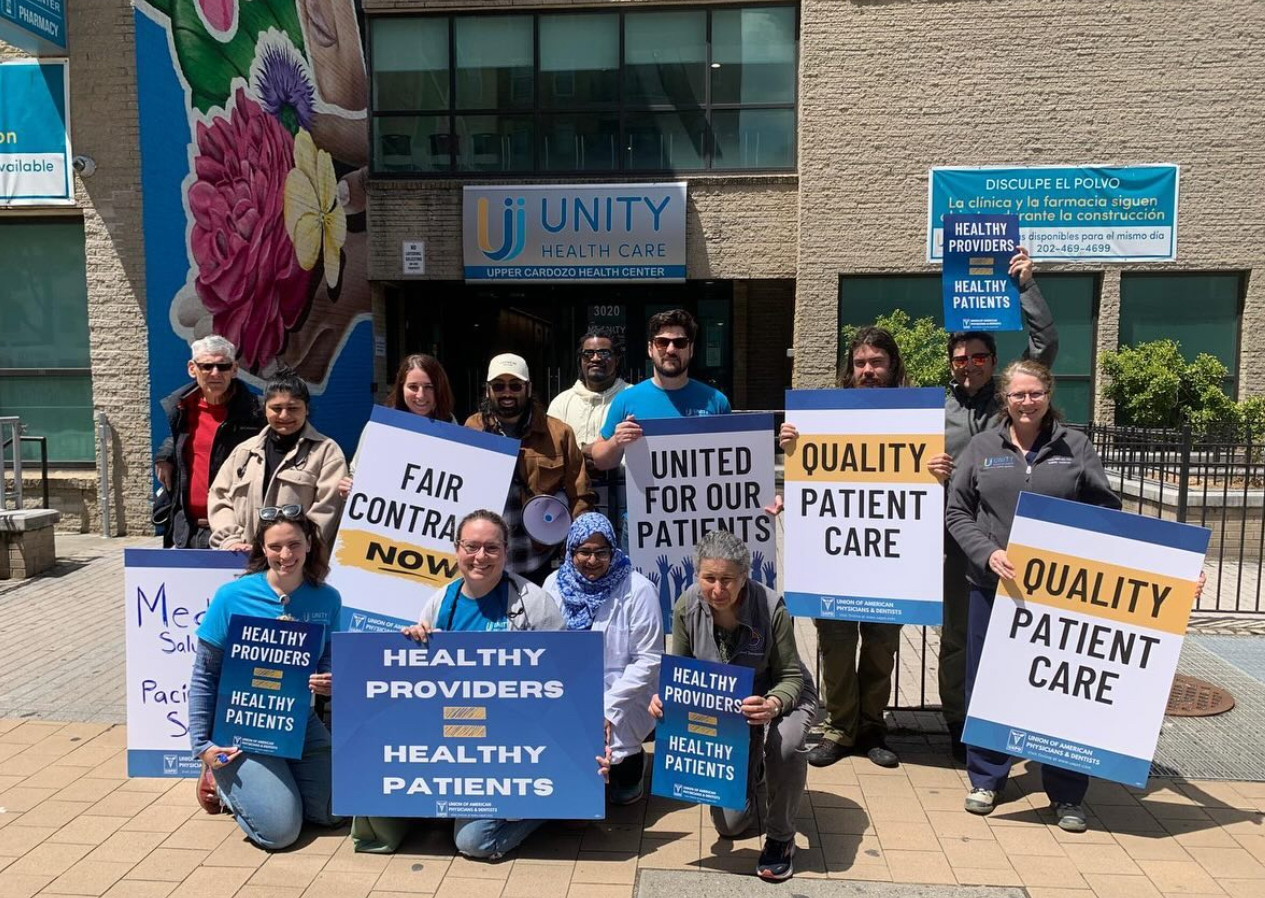|
|
Dear Friend,
The medical providers of Unity have recently authorized a strike after months of negotiating their first collective bargaining agreement and enduring unsustainable and deteriorating working conditions that are harming patients and workers alike.
Unity is one of the largest Federally Qualified Health Centers (FQHCs) in Washington, D.C. As a publicly-funded safety-net for over 85,000 of our city’s most underserved patients, Unity provides critical healthcare services to working-class people of color, Medicaid patients, residents of the DC jail, and the unhoused. As such, it should stand for healthcare equity and justice, but recent actions by management prove that Unity has no concern for the broader community or its employees. |
|
|
In December, Unity providers (doctors, nurse practitioners, physician assistants, dentists, and specialists) organized a union to improve scheduling, enhance workplace safety, build transparency, and increase time spent with each patient. Providers began negotiations for their first union contract several months ago as working conditions only continued to worsen. Over the last 6 months approximately 30 Unity medical providers have resigned citing untenable schedules, unreasonable daily patient quotas, understaffing, and inept leadership. Losing such a high number of medical providers in a short amount of time has caused fragmented, inadequate care to vulnerable patients, which only further erodes patients’ already fragile trust in the healthcare system.
In their collective bargaining effort for a fair contract and safe working conditions, the remaining 115 Unity providers have faced unfair labor practices including ongoing retaliation for their union participation. Multiple charges have been filed against Unity including bargaining in bad faith by canceling and delaying negotiation sessions and providing inaccurate information to the union. Throughout bargaining, Unity management has made it clear that they would rather invest in expensive, union-busting lawyers than in their own employees or the wellbeing of the patients they serve. Unity President and CEO Jessica Henderson Boyd has also refused to meet with union reps to discuss these serious problems. For these reasons, Unity providers have authorized a strike with an overwhelming 95% “YES” vote.
The residents of Washington, D.C. deserve a healthcare system that is both effective and equitable. And Unity employees deserve respect, safety, and dignity in the workplace. We need community members like you to act now and demand that DC Council and Mayor Bowser protect Unity, its medical providers, and its patients. They must ensure Unity management agrees to a fair union contract to avoid a labor dispute. The city has a responsibility to intervene before our communities are further affected by this crisis. |
|
In solidarity, Dida El-Sourady Organizing Director DC Jobs With Justice |
|
|

